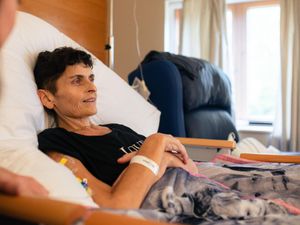Region's NHS trusts have paid £61m in damages due to maternity negligence causing cerebral palsy
NHS trusts in Birmingham and Sandwell have paid out more than £61 million in damages due to failings on maternity wards leading to cerebral palsy, recent figures have shown.
Watch more of our videos on ShotsTV.com
and on Freeview 262 or Freely 565
A freedom of information request submitted to NHS Resolution showed that over the last 10 years, Birmingham Women's and Children's Hospitals, University Hospitals Birmingham, and Sandwell and West Birmingham Hospitals Trusts settled a total of 26 clinical negligence claims related to cerebral palsy, paying out £61,037,502 in damages – an average of £2.3 million per case – and £8,756,842 in legal fees.
The data, which spans the financial years of 2012/13 and 2022/23, also revealed that nationally, one in every 14 cerebral palsy cases 'could have been avoided', with trusts across the country paying out a total of £3.5 billion in damages across 1,307 clinical negligence cases, and £490 million in legal fees.
'Preventable causes' of cerebral palsy in babies have been put down to things such as delayed delivery, birth injuries, failing to respond to an umbilical cord being wrapped around a baby's neck, and missing signs of foetal distress, such as meconium.
Below are the amounts paid out by the Birmingham BHS Trusts.
University Hospitals Birmingham NHS Foundation Trust
Number of claims: 10
Damages paid: £25,851,805
NHS legal costs paid: £801,322
Claimant legal costs paid: £2,949,169
Total: £29,602,296
Birmingham Women's and Children's NHS Foundation Trust
Number of claims: 9
Damages paid: £23,337,594
NHS legal costs paid: £962,415
Claimant legal costs paid: £1,819,590
Total: £26,119,600
Sandwell & West Birmingham Hospitals NHS Trust
Number of claims: 7
Damages paid: £11,848103
NHS legal costs paid: £674,346
Claimant legal costs paid: £1,550,000
Total: £14,072,448
James Anderson, a medical negligence solicitor from Lime Solicitors, says maternity ward scandals are all too regular.
He said: "One of the main causes of cerebral palsy is hypoxic brain injury during childbirth, which is where a baby’s brain gets starved of oxygen. Sometimes, this cannot be prevented or it is impossible to work out what caused the child’s injuries. However, negligent mistakes by healthcare professionals can lead to a child sustaining a hypoxic brain injury.
"The regularity of maternity ward scandals in the press is alarming, yet wholly unsurprising; negligent injuries resulting in cerebral palsy should not take place and we know the lessons that should have been learned, but unfortunately time and time again, the same mistakes are made."
Cerebral palsy is a lifelong condition that affects movement and co-ordination and does not yet have an available cure.
Those living with the condition may face movement, walking and speech difficulties, learning disabilities, cognitive impairments, hearing or vision loss, epilepsy, spinal deformities, and joint problems, and require ongoing physiotherapy, speech therapy, occupational therapy and medication.
In a survey of more than 1,000 women, the solicitor firm found that eight per cent of women said they had been discriminated against by a healthcare professional because of pregnancy or maternity, which more than doubled to 19.6 per cent among women of colour.
Mr Anderson added: "It is crucial families have their voices heard and their concerns taken seriously in order to prevent issues, but also – should the worst happen – it's imperative families do seek the compensation they need to provide the often expensive and essential equipment, care assistance, education, and home adaptations required to help their child live a fulfilling life."
Dr Satish Rao, interim chief medical officer at Birmingham Women's and Children's NHS Foundation Trust said: "When expected standards of care are not met our Trust investigates thoroughly to learn via a number of processes and sometimes via clinical claims. We ensure families are treated with sensitivity and supported throughout these difficult processes."
Information from cerebralpalsy.org,uk says approximately 1,700 children are diagnosed with cerebral palsy every year, meaning nearly 1 in 14 of the estimated 18,700 new cases nationwide over the past 11 years were caused by negligent mistakes.
Sandwell and West Birmingham NHS Trust and University Hospital Birmingham NHS Trust have been contacted for comment.
More information on the study and about medical negligence can be found at limesolicitors.co.uk/medical-negligence-compensation.





